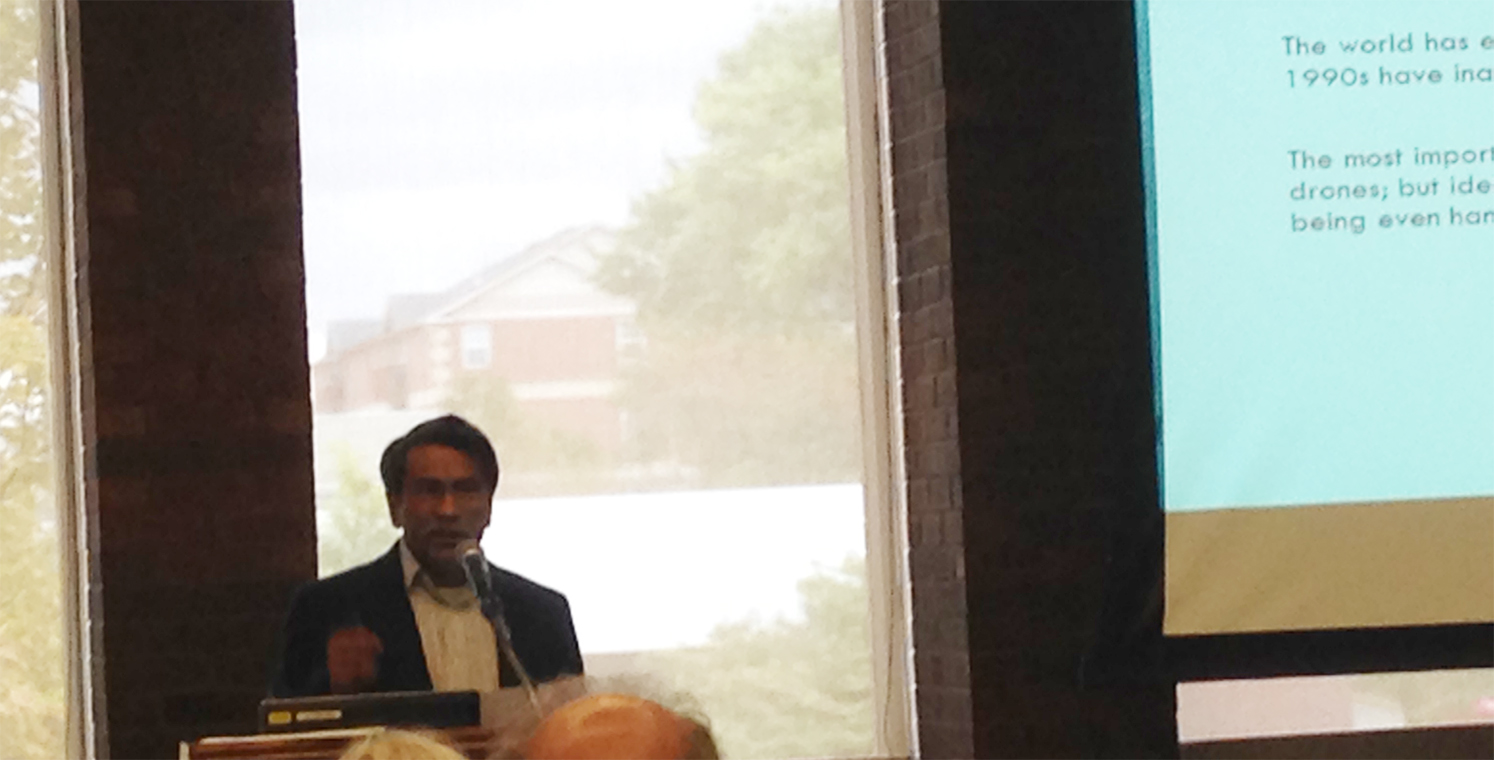University Professor and Chair of Politics and Government Ali Riaz presented “Foreign Policy: What Challenges Will the New President Face?” at the Fall 2016 International Studies Seminar Series, September 28.
The image of the United States in the world is not determined only by its ideals and foreign policy measures, but also by what happens inside the US. —Ali Riaz
Professor Riaz argued that the new President will have to acknowledge that the U.S. operates within a “multi-player” global political landscape. In this environment, the U.S. administration have to shun the mindset that “we are the most powerful” because the U.S. is not the only hegemonic force. It doesn’t mean, explained Riaz, that the U.S. has “lost” power and that “building” military power will be able to bring the old days; instead it’s necessary to accept the fact that the world has changed, and that the global economic center has shifted.
Riaz went on to argue that in the new global environment, there are no permanent friends or permanent enemies, but rather adversaries and partners. The U.S. will therefore have to work with others and build alliances. Professor Riaz said that Russia’s expansionist and belligerent posturing will be a serious challenge to the next President. The U.S. will have to find ways to work with China on many issues; but it will also need to contain China.
One of the main challenges for the new President will have to find ways to have a balance between engagement and disengagement in the Middle East. He said that the U.S., especially the new President, will have to make a choice between protectionism and internationalism in trade. “The image of the United States in the world is not determined only by its ideals and foreign policy measures, but also by what happens inside the U.S.; the persistent inequality, police brutality, racial and religious prejudice are unhelpful in projecting a positive image.”

